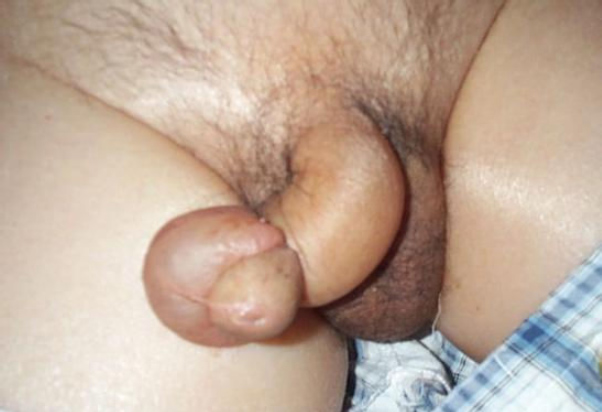Penile cancer
(Redirected from Penile carcinoma)
Editor-In-Chief: Prab R Tumpati, MD
Obesity, Sleep & Internal medicine
Founder, WikiMD Wellnesspedia &
W8MD medical weight loss NYC and sleep center NYC
| Penile cancer | |
|---|---|

| |
| Synonyms | Cancer of the penis |
| Pronounce | N/A |
| Specialty | N/A |
| Symptoms | Lump on the penis, ulceration, bleeding, discharge |
| Complications | Metastasis, erectile dysfunction, urinary obstruction |
| Onset | Most common in men over 50 |
| Duration | Long-term |
| Types | N/A |
| Causes | HPV, smoking, phimosis, poor hygiene |
| Risks | HPV infection, smoking, uncircumcised |
| Diagnosis | Biopsy, imaging studies |
| Differential diagnosis | STI, dermatitis, psoriasis |
| Prevention | HPV vaccine, circumcision, safe sex |
| Treatment | Surgery, radiation therapy, chemotherapy |
| Medication | N/A |
| Prognosis | Depends on stage at diagnosis |
| Frequency | Rare, <1% of male cancers |
| Deaths | Varies by region |
Penile cancer is a rare type of cancer that forms in the penis, an external male reproductive organ. Most cases of penile cancer are classified as squamous cell carcinomas, which begin in the flat cells lining the penis.
Types[edit | edit source]
Penile cancer primarily includes:
- Squamous cell carcinoma: The most common type, originating in the flat cells of the penis.
- Melanoma: A less common type, affecting the pigment cells in the skin of the penis.
- Other rarer types include adenocarcinoma, sarcoma, and basal cell carcinoma.
Causes and Risk Factors[edit | edit source]
While the exact cause of penile cancer is unknown, several risk factors have been identified, including:
- HPV infection
- Smegma buildup due to poor hygiene
- Phimosis
- Smoking
- Age (most common in men over 50)
Symptoms[edit | edit source]
Common symptoms of penile cancer include:
- A growth or sore on the penis, often painless
- Thickening of the skin of the penis
- Discoloration or change in the skin of the penis
Diagnosis[edit | edit source]
Diagnosis of penile cancer typically involves:
- Physical examination
- Biopsy
- Imaging tests such as MRI, CT scan, or ultrasound
Treatment[edit | edit source]
Treatment options vary based on the stage and type of cancer and may include:
- Surgery
- Radiation therapy
- Chemotherapy
Prevention[edit | edit source]
Preventive measures include practicing good hygiene, HPV vaccination, and avoiding tobacco use.
External Links[edit | edit source]
Search WikiMD
Ad.Tired of being Overweight? Try W8MD's physician weight loss program.
Semaglutide (Ozempic / Wegovy and Tirzepatide (Mounjaro / Zepbound) available.
Advertise on WikiMD
|
WikiMD's Wellness Encyclopedia |
| Let Food Be Thy Medicine Medicine Thy Food - Hippocrates |
Translate this page: - East Asian
中文,
日本,
한국어,
South Asian
हिन्दी,
தமிழ்,
తెలుగు,
Urdu,
ಕನ್ನಡ,
Southeast Asian
Indonesian,
Vietnamese,
Thai,
မြန်မာဘာသာ,
বাংলা
European
español,
Deutsch,
français,
Greek,
português do Brasil,
polski,
română,
русский,
Nederlands,
norsk,
svenska,
suomi,
Italian
Middle Eastern & African
عربى,
Turkish,
Persian,
Hebrew,
Afrikaans,
isiZulu,
Kiswahili,
Other
Bulgarian,
Hungarian,
Czech,
Swedish,
മലയാളം,
मराठी,
ਪੰਜਾਬੀ,
ગુજરાતી,
Portuguese,
Ukrainian
Medical Disclaimer: WikiMD is not a substitute for professional medical advice. The information on WikiMD is provided as an information resource only, may be incorrect, outdated or misleading, and is not to be used or relied on for any diagnostic or treatment purposes. Please consult your health care provider before making any healthcare decisions or for guidance about a specific medical condition. WikiMD expressly disclaims responsibility, and shall have no liability, for any damages, loss, injury, or liability whatsoever suffered as a result of your reliance on the information contained in this site. By visiting this site you agree to the foregoing terms and conditions, which may from time to time be changed or supplemented by WikiMD. If you do not agree to the foregoing terms and conditions, you should not enter or use this site. See full disclaimer.
Credits:Most images are courtesy of Wikimedia commons, and templates, categories Wikipedia, licensed under CC BY SA or similar.
Contributors: Kondreddy Naveen, Prab R. Tumpati, MD

